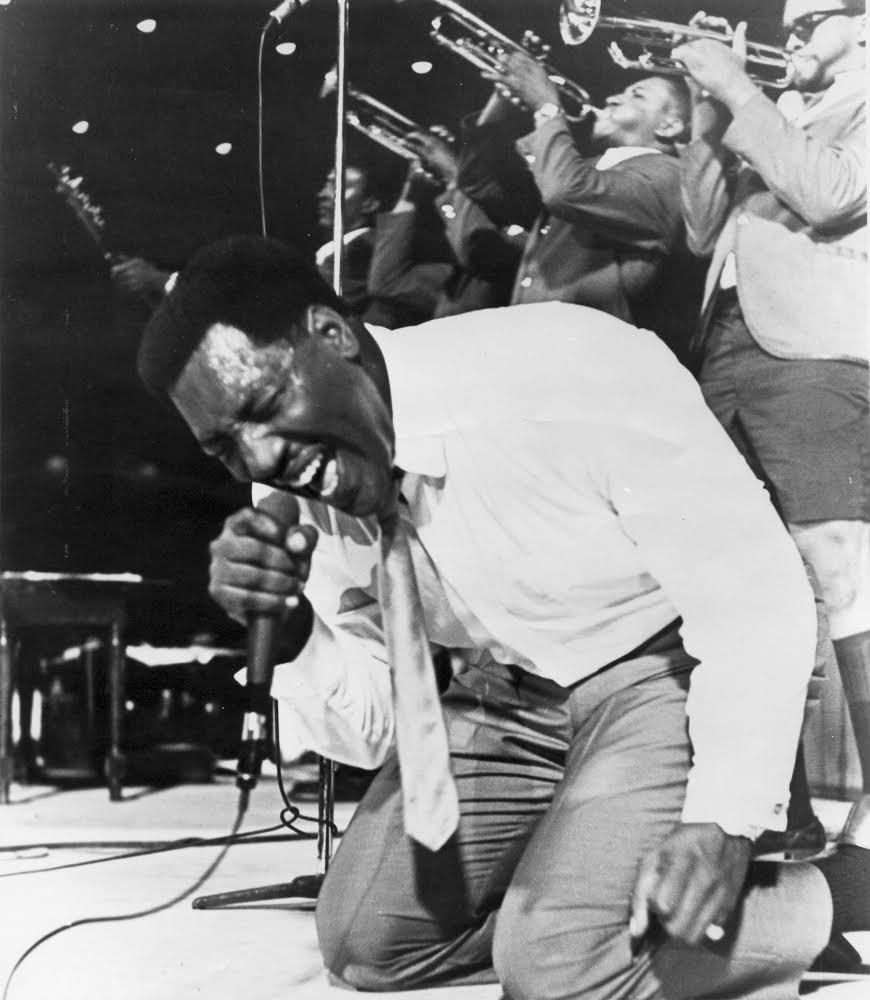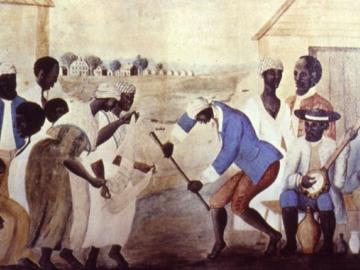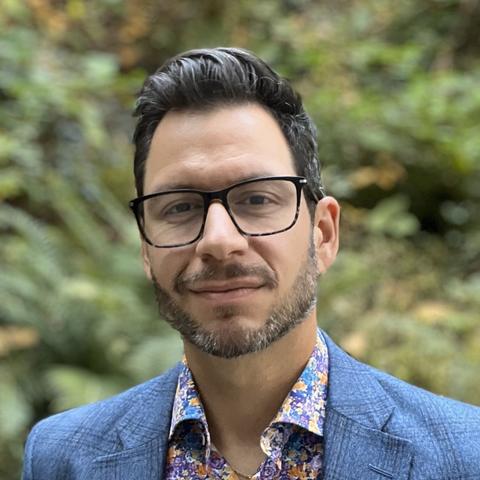
Section Branding
Header Content
Georgia Today: Primary election; Ex-GA congressman elected NRA president; Macon affordable housing
Primary Content
LISTEN: On the Tuesday, May 21 edition of Georgia Today: Voters in Georgia are headed to the polls on this primary day; a former Georgia congressman has been elected president of the National Rifle Association; and new affordable housing options are in the works in Macon.

Peter Biello: Welcome to the Georgia Today podcast from GPB News. Today is Tuesday, May 21. I'm Peter Biello. On today's episode, voters in Georgia are headed to the polls on this primary day. A former Georgia congressman has been elected president of the National Rifle Association; and new affordable housing options are in the works in Macon. These stories and more are coming up on this edition of Georgia Today.
Story 1:
Peter Biello: Polls are open until 7 p.m. today as Georgians decide key U.S. House and state legislative races in the Republican and Democratic primaries. Nonpartisan judicial races and party preference questions are also on balance statewide, and many localities will decide tax and spend measures. Ann Curry voted this morning in Savannah.
Ann Curry: Well, it is my right to vote. And I think that it is important to vote no matter who you're voting for. It makes a difference. And I don't think enough people are voting. And so it's really important to me.
Peter Biello: Among the more high-profile races on the ballot today, a usually sleepy state Supreme Court race has been jolted by abortion, and there is a five-way GOP primary for an open seat in West Georgia's strongly Republican 3rd Congressional District. That's where Danny Kemp voted in Villa Rica, west of Atlanta.
Danny Kemp: We got to get it straightened out. If we don't come vote, you can't say anything.
Peter Biello: The Georgia Secretary of State's office said turnout in today's election has been higher than anticipated. High traffic to the state's My Voter Page caused the website to crash for about 45 minutes. Georgia Secretary of State Chief Operating Officer Gabe Sterling:
Gabe Sterling: I guess it's kind of a good/bad thing. They got more people hitting My Voter Page than we anticipated for today. And again, it's a good lesson learned for the future when we have the big election in November.
Peter Biello: As of this afternoon, the site was back up. Overall, Sterling says things have gone smoothly. There was at least one potential problem in Bibb County. There, an unknown number of voters may have cast primary ballots in the wrong state House district. GPB's Grant Blankenship explains.
Grant Blankenship: The problem lies on the border of state House districts 143 and 145. According to redistricting maps created by the General Assembly, some voters on the border are in District 143. According to the Secretary of State, the same voters are in District 145. Secretary of State relies on county information to build ballots, and Bibb County Election Supervisor Tom Gillen says redistricting work done in his office was not completed before the primary.
Tom Gillen: He thought the person who was and, you know, spearheaded that had gotten it all done. Turns out it wasn't. But, it does behoove the voter to know who their representatives are before they step up to the booth.
Grant Blankenship: It's unclear if votes cast along the border will count or not. For GPB News, I'm Grant Blankenship in Macon.
Peter Biello: To see all of our coverage for today's primary, as well as up-to-the-minute election results once the polls close, go to GPB.org/elections.

Story 2:
Peter Biello: U.S. Postmaster General Louis DeJoy is under fire for his 10-year plan to consolidate 60 mail processing facilities across the country. It's called Delivering For America, but its implementation is causing major delays in letters getting to their destinations. Georgia residents have experienced some of the worst mail delays after the Postal Service consolidated four facilities into one, which has been plagued with problems. GPB's Sarah Kallis reports local leaders and residents are fed up with the delays.
Sarah Kallis: Claire Graveline is getting married in August, but a lot of her "save the date" invitations for her wedding got hung up in the mail.
Claire Graveline: It's been an adventure.
Sarah Kallis: It's caused issues with her wedding planning.
Claire Graveline: Gauging the total guest count, which obviously it's a domino effect, right? Like, it affects all of the services that you have to book and organize with vendors.
Sarah Kallis: She says six weeks after sending the Save the Date cards, a third of her guests still hadn't received them. So with her fiance, they called all 200 guests.
Claire Graveline: It can feel disappointing that you can't depend on the Postal Service and just their ability to handle important mailings reliably and efficiently, beyond wedding invitations.
Sarah Kallis: She's not alone. Only an estimated 36% of mail is getting delivered on time, since a new processing facility in Palmetto, Ga., went online in February. It has caused delays of absentee ballots for the state's primary on Tuesday. One county reported that a number of ballots never made it to their elections office. The Postal Service says equipment is still missing. There aren't enough truck drivers and there are staff shortages.
Jon Ossoff: I don't think you're fit for this job.
Sarah Kallis: That's Georgia's Sen. Jon Ossoff grilling Postmaster General Louis DeJoy in a fiery Senate committee meeting after complaints of slow mail service.
Jon Ossoff: I've got constituents with prescriptions that aren't being delivered. I've got constituents who can't pay their rent and their mortgages. I've got businesses who aren't able to ship products or receive supplies.
Sarah Kallis: DeJoy defended the Palmetto facility and said the problems were just temporary.
Louis DeJoy: The team is working very hard and I can assure you that in the long run that you will have the — probably the best service in —
Jon Ossoff: The long run is too long.
Sarah Kallis: Problems with the consolidation have gotten so bad, that Postmaster DeJoy halted any new movement on his plan until next year. Meanwhile, in Georgia, officials say their new processing centers will get more sorting machines and improve transportation to get letters to people on time. For GPB News, I'm Sarah Kalis in Atlanta.

Story 3:
Peter Biello: Former Georgia congressman Bob Barr has been elected president of the National Rifle Association. Barr represented Georgia's 7th District, covering parts of metro Atlanta from 1995 to 2003. The board of directors for the gun rights lobbying group elected Barr to the position after a weekend meeting in Dallas. The board also named a new CEO to replace former CEO Wayne Lapierre, who resigned earlier this year and has been found liable for misusing millions of the organization's dollars.
Story 4:
Peter Biello: A new apartment complex in Macon will provide affordable housing for downtown workers and a safe place for the homeless to recover from medical care. GPB's Grant Blankenship reports.
Grant Blankenship: It's $600 a month rent and 66 of the units in Central City Apartments will be less than half of market rate rents elsewhere in downtown Macon. Another 16 units will be set aside as supportive housing for unhoused clients of the Daybreak Day Resource Center next door, which, along with the Macon Housing Authority, spearheaded the project. The marquee feature from the Daybreak Center perspective are the dozen medical respite rooms for unhoused people to recover in after leaving the hospital. Sally Profitt is a volunteer nurse at daybreak.
Sally Profitt: We had one guy come out of the hospital having had open heart surgery and he was sleeping under the bridge. You know, we have people come out that need oxygen. They can't have oxygen on the street.
Grant Blankenship: As a bonus, after people leave the medical respite, they too will be in line for further supportive housing. For GPB News, I'm Grant Blankenship in Macon.
Story 5:
Peter Biello: A Georgia bill signed this year guarantees privacy for Georgia health care workers who use employer provided mental health programs. GPB's Ellen Eldridge reports.
Ellen Eldridge: House Bill 455 also clarifies that treatment cannot be reported to a licensing board unless a person is a danger to themselves or others. Dr. Keisha Collins is an OB-GYN working to bolster mental wellness programs in Georgia. Deaths by suicide among doctors and nurses are often precipitated by fear of judgment for seeking help.
Dr. Keisha Collins: And when we lose a physician, especially as you know, we have such a desert of physicians already in primary care, that's a huge loss for the state. So anything that we can do to keep people in practice, keep people healthy, especially in our rural communities, is huge.
Ellen Eldridge: Collins is part of a group launching a new safe haven program soon for health care workers in Georgia. For GPB News, I'm Ellen Eldridge.

Story 6:
Peter Biello: Heirs to the estate of Macon music trailblazer Otis Redding have signed a deal with Sony Music Publishing over administration of the late soul legend's song catalog. Redding's estate, doing business as Big O Holdings, said yesterday they have not sold the catalog and that the agreement will ensure the longevity of the singer's legacy. Redding was known for his hits including "Sittin on the Dock of the Bay," "Respect," covered by Aretha Franklin, and "Hard to Handle," covered by The Black Crowes. He died in 1967.
Story 7:
Peter Biello: The Georgia Ports Authority says a surge of auto imports rerouted from Baltimore led to its busiest month ever for car and truck shipments. The agency's CEO said today more than 80,000 automobiles and heavy machinery units moved through the Port of Brunswick in April. That is a whopping 44% increase over the same month last year. The surge included 9,000 vehicles that had to be diverted from the Port of Baltimore after a bridge collapse in March closed its harbor to most ships.

Story 8:
Peter Biello: The peninsula of Harris Neck, just off the Georgia coast, was long home to Gullah Geechee people, first as enslaved workers and later as landowners after the Civil War. But during World War II, the federal government forced these Black families off their land to make way for a military air base. The land was never returned. Now, some descendants intend to ask President Joe Biden for part of the property back. Benjamin Payne takes us to Harris Neck in McIntosh County.
Benjamin Payne: Wilson Moran is looking out over a quiet pond. The water's edge is encrusted with a thick layer of algae. But back when Moran's mother was a child, the pond was lush with rice paddies.
Wilson Moran: All through here, it was just green. And oh, at this time of year, it would be just beautiful.
Benjamin Payne: At 81, Moran is among the oldest living descendants of Harris Neck residents. His mother told him stories of:
Wilson Moran: Walking through the paddies, banging metal pans or whatever to keep the rice birds from eating all the rice. But like my mother would tell you, she lived here for 20 years. And the best years of her life was right here.
Benjamin Payne: Harris Neck is a 2,800-acre peninsula packed with longleaf pine forest, saltmarsh and live oak trees draped with Spanish moss.
Wilson Moran: I wish you could imagine, 70-something families living on prime land. We made our own nets, built our own houses. We had a fire station. We had a schoolhouse. They lived well, extremely well, until 1942.
Benjamin Payne: That summer, the federal government seized Harris Neck through eminent domain to build a military airbase amid World War II. Dozens of Gullah-Geeche families like Winston Releford's were forced off the land.
Winston Releford: When it came to a Black man in 1942, what recourse did he have? You know, he had — he had to agree. He had no basis to fight from, you might say. So the land was given, and plus a patriotic part of them was that, "Well, if the federal government needs our land, then we can probably give that up and not feel so slighted," with the promise to return the land.
Benjamin Payne: But Releford says the promise to return the land was never fulfilled. Instead, Harris neck eventually became what it is today: a National Wildlife Refuge under management by the U.S. Fish and Wildlife Service.
Winston Releford: That's so unfair. There was a moral injustice done to those 75 to 80 families that lived on Harris Neck. And all we're asking the federal government to do is just grow a backbone and stand up with some courage and correct a moral wrong.
Benjamin Payne: And that is where the Harris Neck Land Trust comes in. Releford is chairman of the nonprofit group, which purports to represent about 70 descendant families. Moran is a board member. Since 2005, the group has tried to work with Congress and Fish and Wildlife to get some of the land back, but to no avail. So they are preparing for what feels like a last-ditch effort: traveling to Washington, DC to ask President Joe Biden:
Dave Kelley: To sign an executive order to return 500 of the total acreage.
Benjamin Payne: That's Dave Kelley, executive director of the Harris Neck Land Trust. He moved to McIntosh County from California over 20 years ago. Kelley calls the planned request to Biden modest. 500 acres comes out to a little under 20% of the total acreage of the current refuge.
Dave Kelley: 90% of the 500 acres we're asking for is going to remain as green space. And then the other 10%, the plans are to build the living museum, which will be like stepping into Harris Neck of 1900. And then for those descendants who have the financial means, they'll be allowed to come back and build houses.
Benjamin Payne: Kelley says the sought-after acreage is located far away from the federally protected wood stork habitat on the refuge. Rather, it's on what he calls poorly managed forest land. U.S. Fish and Wildlife declined GPB's request for an interview. Instead, the agency sent us a written statement defending its management of the forest. It also raised concerns about the American public losing, quote, "equitable access to their public lands and the conservation and public use benefits of a National Wildlife Refuge," unquote. Plus, Fish and Wildlife says they already listen to Gullah Geechee descendants. They point to a memorandum of understanding signed in 2020. But that agreement is not with the Harris Neck Land Trust, but rather one signed by two members of a single family, the Timmons family.
Frances Timmons: We have a long way to go, but we have come a long way in a short length of time.
Benjamin Payne: That's Frances Timmons in her office near the refuge. She was a member of the land trust, but left to start her own group in 2019, called Direct Descendants of Harris Neck Community. Timmons is the granddaughter of William Timmons, a prominent Gullah Geechee businessman whose more than 300 acres made him the largest landowner on Harris Neck before the federal government took over the peninsula in 1942.
Frances Timmons: It is extremely important that those 311 acres that we know is ours, is ours. We should have firsthand knowledge — we should have the first opportunity to make decisions about it, should and when some of it may be returned.
Benjamin Payne: But the memorandum she and her nephew Tyrone signed with Fish and Wildlife does not call for any transfer of title to any land. Rather, it calls for, quote, "enhanced communication and collaboration," which to Tyrone Timmons, means...
Tyrone Timmons: Being able to sit down at the table to talk about the different things and work with them on whatever projects they may have going on down there.
Benjamin Payne: Like the annual July commemoration of the federal government's takeover of Harris Neck.
Tyrone Timmons: We have a nice program where we have different speakers and keynote speakers and everything like that, and Fish and Wildlife are right there walking with us hand-in-hand.
Benjamin Payne: To Harris Neck Land Trust board member Wilson Moran, land acknowledgments don't go nearly far enough. Only handing land back can make Harris Neck descendants whole.
Wilson Moran: We stand on the shoulders of our ancestors, and for what happened to them and the trauma they experienced, I can't even imagine.
Benjamin Payne: But he tries to imagine. Along the muddy banks of a winding river on the north side of the refuge, he points to the eastern horizon.
Wilson Moran: Right in that gap right there. That's the Atlantic Ocean. And you know what's over on the other side, right? West Africa. And that's where they took us from and brought us here.
Benjamin Payne: America. An America where Moran hopes President Biden will do what Moran says is the right thing: return part of Harris Neck to the Gullah-Geechee. The Harris Neck Land Trust plans to take their request to the White House this summer. For GPB News, I'm Benjamin Payne at Harris Neck National Wildlife Refuge in McIntosh County.

Story 9:
Peter Biello: The nation's largest franchisor of indoor pickleball clubs, says it's expanding into Georgia. Arizona-based Pickleball Kingdom today announced 26 new locations, including one in Atlanta. The company is joining several competitors aiming to cater to fans of one of the nation's fastest-growing sports. In other sports news, the Braves are in Chicago this afternoon for the opening of a three-game series against the Chicago Cubs. Last night, in the second game of a doubleheader against the San Diego Padres, starter Chris Sale threw his 20th consecutive scoreless inning, pitching seven innings, striking out nine and allowing only five hits. Catcher Travis d'Arnaud says Sale has excellent control of his fastball.
Travis d'Arnaud: He's not scared of anybody and I, and it's huge for us, especially because we were on a little four-game skid. So for him to put that to a halt is — it's what a lot of aces do.
Peter Biello: Charlie Morton is expected to get the start tonight. He's up against Javier Assad of the Cubs for the second time this month. Last week, Assad threw six scoreless innings against Atlanta to earn the win. And in basketball, the Atlanta Dream play their home opener tonight against the Dallas Wings. The Dream are currently 1 and 1.
Peter Biello: And that is it for this edition of Georgia Today. If you want to learn more about any of these stories, visit GPB.org/news. And if you haven't yet, subscribe to this podcast. Take a moment and do it now. That'll keep us current in your podcast feed. Tomorrow we will be reporting on the results of today's primary election, and you won't want to miss it. If you've got feedback on this podcast or a story idea we should know about, please let us know. The address is GeorgiaToday@GPB.org. I'm Peter Biello. Thanks again for listening. We'll see you tomorrow.
---
For more on these stories and more, go to GPB.org/news



